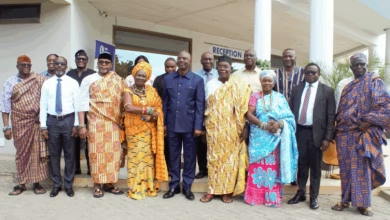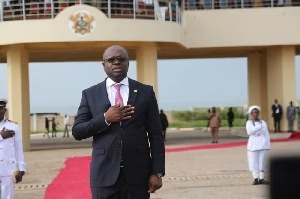Youth Empowerment Group Urges Government to Finish Abandoned Projects

- GYLA urges gov't to complete abandoned projects.
- Accountability needed to restore hope in communities.
- Abandoned projects cause environmental & economic losses.
- Better planning & transparency needed to address issue.
The Ghana Youth Leadership Academy (GYLA), a youth empowerment advocacy group, has called on the government to expedite the completion of all outstanding public infrastructure projects. According to GYLA, the government must keep its commitments to the people of Ghana by completing all abandoned projects and restoring hope in the communities that have been left behind.
Ms. Dorcas Antwi, a Fellow of GYLA, emphasized the need for accountability and ensuring that every initiative started is completed. She noted that abandoned projects were meant to provide essential services like healthcare, education, and housing but have instead become symbols of wasted resources and lost opportunities for national development.
Ghana, like many other Sub-Saharan African countries, has major infrastructure deficits across various sectors, emphasizing the critical need for long-term infrastructure development. However, the desperate push to develop infrastructure has led to the completion of projects that are often misaligned with the actual needs of the communities they are intended to serve.
Many of these projects, built as status symbols without proper planning, are abandoned shortly after completion, if not before, causing significant environmental concerns, economic losses, and a decline in socioeconomic growth. GYLA highlighted several abandoned public projects across the country, including schools, libraries, roads, and healthcare facilities, which have caused pain, frustration, and dissatisfaction among citizens.
The group urged Metropolitan, Municipal, and District Assemblies to prioritize people’s needs, traditional and religious leaders to use their influence to fight for project completion, and the youth to hold officials accountable. GYLA emphasized the need for better planning, transparency, and community involvement in decision-making processes, committing to making this a national conversation that would lead to real change.






